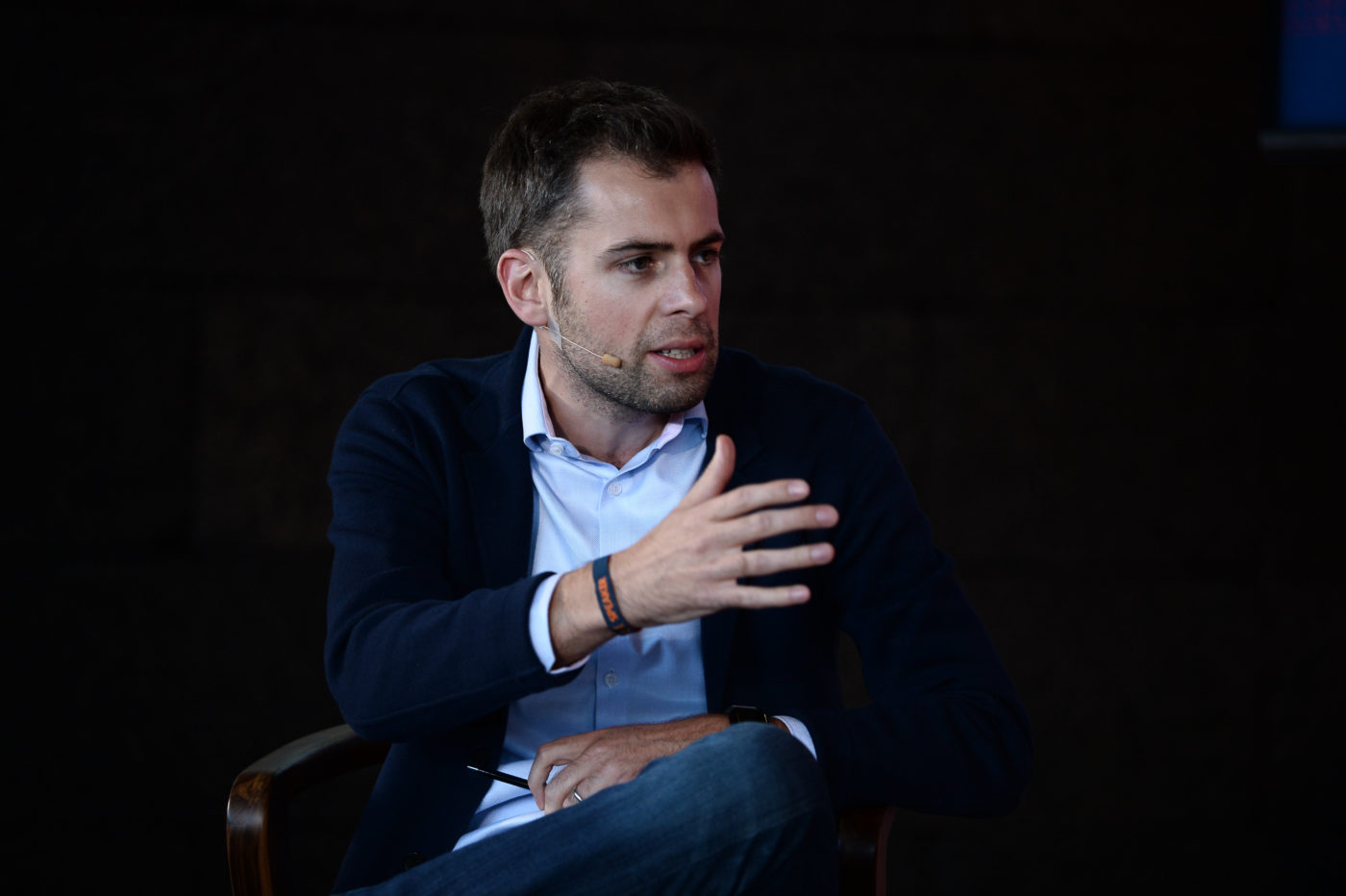
Entrepreneur, author and speaker Ellie Rubin sits down with Founders Edge to discuss the biggest lessons she learned in building and selling Bulldog, an early leader in digital asset management that raised $35 million before being acquired by Documentum/EMC. As a writer and journalist, she’s conducted hundreds of interviews with founders, influencers and thought leaders, and breaks down the key themes in entrepreneurship that never change— no matter what stage your startup is in.
For Ellie Rubin, inspiration can come from unexpected places. The successful founder, bestselling author, speaker and travel journalist recalls learning to conquer fear at an elevation of 16,000 feet while on a heli-skiing expedition in the Andes. For the uninitiated, heli-skiing involves off-trail, downhill skiing from elevations so high that they can only be reached by helicopter.
It was petrifying. But it was also the perfect analogy for the tough moments in entrepreneurship.
“As the helicopter spooled away from me – I was faced with the reality that I had to overcome a 300-metre drop and a 3 hour ski journey ‘off piste’, if I was going to make it back. And just like the toughest moments that come with running a startup, I had to face my fear, trust my instincts and with all my focus and stamina, dive into unknown territory.”
Building a company takes guts, resilience and trust
As any founder knows, building a company takes guts, resilience and a certain element of trust — a reality that Rubin knows firsthand. Rubin co-founded Bulldog, a boutique marketing and design firm that branched out into software, helping enterprise clients in the film, television and animation industries to manage media assets. Over the course of a few years, Bulldog raised $35 million, was named by Apple as one of ten top new media firms worldwide, and racked up a list of major customers. In 2001, it was bought by Documentum, which was subsequently acquired by EMC two years later.
After Bulldog was sold to Documentum, sales of Bulldog’s product line exploded from $15 million to $140 million. And a few years later, when Documentum was bought by EMC, the Bulldog Product Leader was asked to manage all the new product groups at EMC in short order.
Rubin’s experience as a founder served as the inspiration for her bestselling book, Bulldog: Spirit of the New Entrepreneur, which chronicled the journey from scrappy startup to leader in enterprise software. That was followed by a second book, Ambition: 7 Rules for Getting There, as well as a career as a columnist, speaker, Stanford Lecturer and journalist who’s equally at home in the startup world and on remote mountaintops. Nowadays, she also spends time coaching startups on their go-to-market and development strategies, with a particular focus on building robust sales teams by combining what she calls ‘old school sales with the power of new world digital intelligence’.
Combining old school sales with the power of new world digital intelligence
“Creating a sustainable sales pipeline is always front and center for every company— from early stage startups to large enterprises. But the challenge startups are facing today is that there are hundreds of new tools and platforms to constantly assess and integrate as a means of building sales opportunities. The level of complexity to combine online mechanics with strategic campaign planning is often expensive and more importantly, are just not achieving the desired results. To counteract all these digital distractions, I always look for a process that allows startups to begin a sales cycle with the ability to sit down face to face and establish common ground with potential clients and partners that is credible, relevant and timely. It the best way to say: ‘Let’s do business together.” Rubin adds.
Software may have changed considerably since Bulldog was sold in 2001, but there are certain fixed aspects to success that don’t change. “ No matter how much technology has evolved, the longer you are part of the startup global ecosystem, the more you come to understand that entrepreneurial attributes can make the difference between success and failure. Ultimately it’s your ability to embrace tenacity while maintaining the agility to negotiate in and around market conditions that you cannot control,” she says.
Relationships are the ingredients that frequently catapults startups to higher ground. Rubin cited an example from the Bulldog years, which was a strategic alliance with Apple that meant a major breakthrough for the growing firm at a time when its main area of focus, visual computing, was still relatively new. As a boutique firm with the ear of major clients in the media world, Bulldog landed on Apple’s radar— and that led to an offer to work out of Apple’s Cupertino headquarters. Rubin and Bulldog— which was based in Canada at the time— were only given a few days to make the decision whether or not to make the jump.
“It’s also where we went from being a service business to a product business, and it was because of that leap and that strategic alliance that we were able to actually build out our platform at a much faster pace, met the right clients, and ultimately raised more capital once we were based in Silicon Valley,” she recalls.
Choosing to be an entrepreneur is both a personal and a professional life commitment
Many of Rubin’s own personal lessons from building and selling companies were validated by her subsequent work as a content creator. In addition to work as a tech commentator, she spent the last several years in Silicon Valley conducting hundreds of video interviews with technology influencers, entrepreneurs and investors as a means of collecting real life learning to pass on to startups globally.
Despite the diversity of those Rubin interviewed, the insights boiled down to a few key themes that are the underpinning of key startup milestones: building a talented team, raising money, building a healthy sales pipeline, and committing to a culture of possibilities. Choosing to be an entrepreneur is both a personal and a professional life commitment and requires what she refers to as ‘magical realism’ – equal amounts of pragmatism and big dreams.
“Before signing any kind of binding contract, always be sure your values align. “That includes investors, distribution partners and most importantly, key decision makers in your company. It takes a thoroughness and a certain level of patience— but it is always worth the effort in order to create long term success.” Rubin says. She advises to ask the tough questions to ensure alignment, ‘fail fast’ to minimize wasted time and resources when faced with crucial decisions and don’t ever take your startup culture for granted. “






